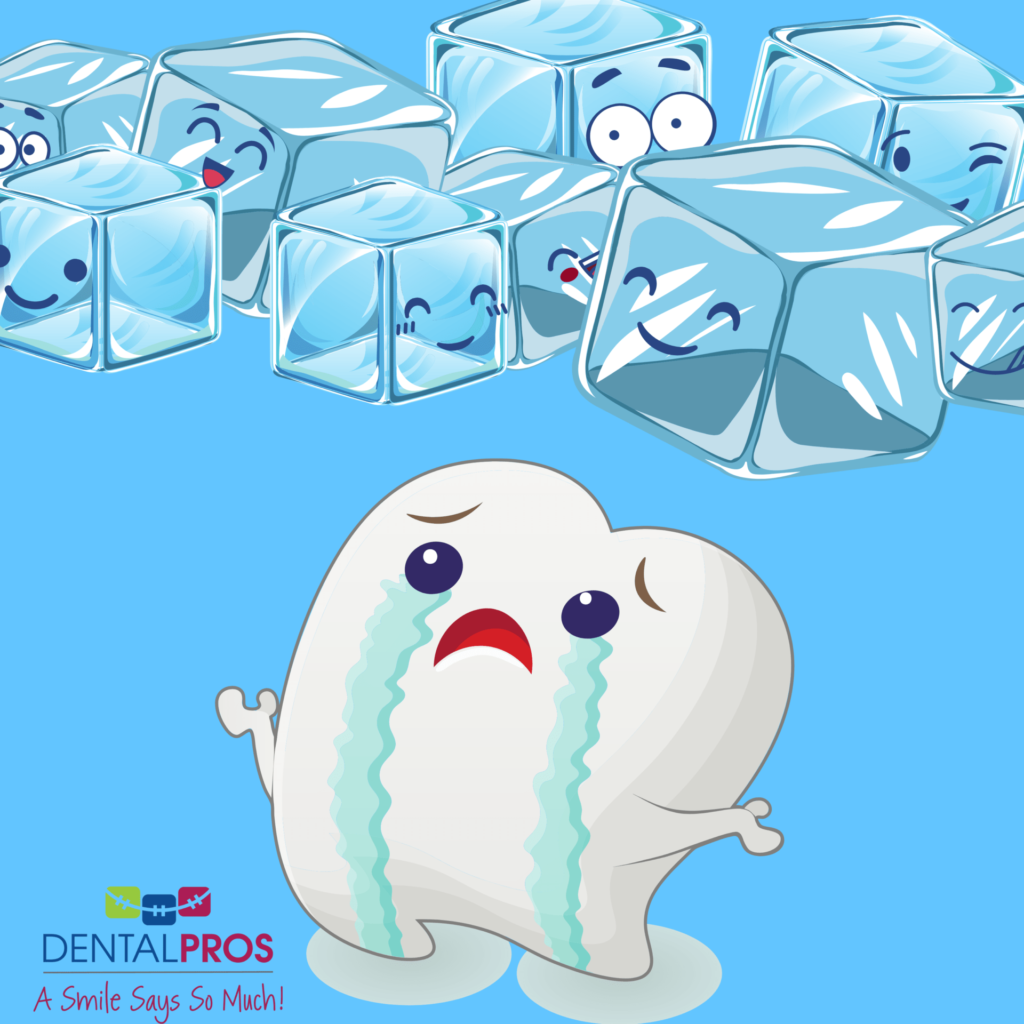Suffering from cold-sensitive teeth?
There is a big difference between having cold-sensitive teeth and suffering from tooth decay or gum disease. If ice cream or drinking cold drinks make your teeth hurt, then you probably have cold-sensitive teeth, but it does not hurt to double check with your dentist.
What causes teeth to be sensitive to the cold?
- If your cold-sensitive teeth also hurt when you are not eating or drinking something cold that could indicate early stages of tooth decay or gum disease. 80% of sensitivity starts at the gum line.
- External factors that could be causing your cold sensitivity are overusing tooth whitening treatments and acids from everyday food and drinks, like wine, coffee, tomatoes etc. Even brushing your teeth too hard can cause loss of your tooth enamel.
- Cold-sensitive teeth also can develop due to tooth grinding, which wears away the tooth enamel and exposed nerves. We always recommend using a night guard which can be a solution to this and you can get them at our office!
- The biological reason behind teeth sensitivity to cold starts in the pulp of the tooth. Pathways called dentinal tubules are filled with fluid, and when a stimulus like cold air or cold liquid is applied to the exposed dentinal tubules, the fluid in the tubules moves and triggers a pain sensation in the nerve.
- Another reason can be tiny cracks. Tiny cracks develop as your teeth expand and contract with exposure to hot and cold temperatures. These tiny cracks are a pathway to the nerves making teeth sensitive to cold.
Teeth sensitive to cold home remedies:
- Avoid biting into very cold foods
- Use a soft toothbrush
- Use a toothpaste for sensitive teeth like Crest Gum and Sensitivity.
If you notice unusual sensitivity don’t hesitate to make an appointment!


